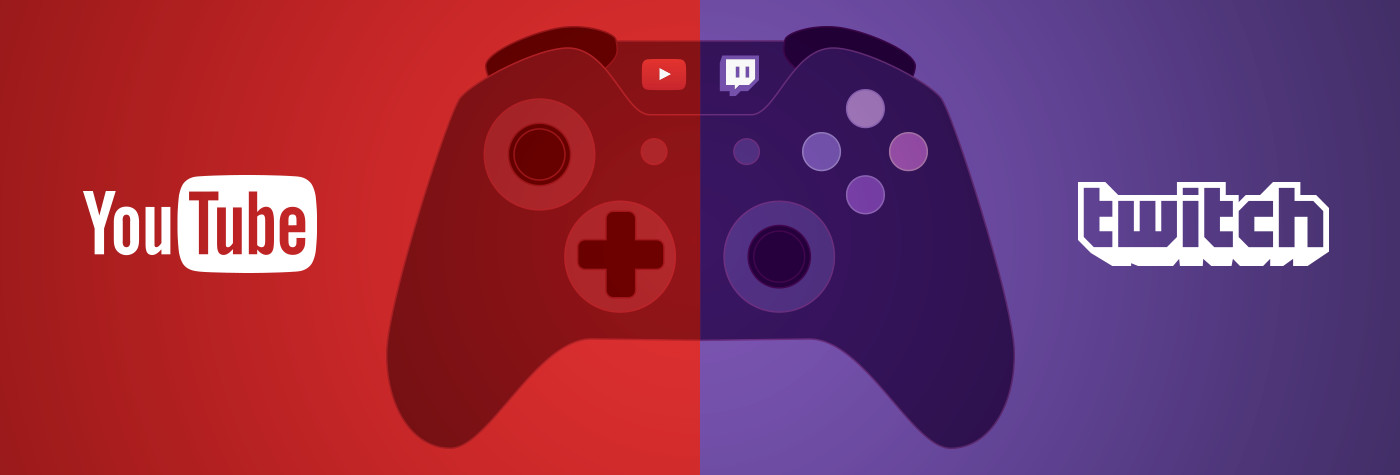The rise of streaming platforms such as Twitch and YouTube has transformed the landscape of online entertainment, making them prominent venues for various gaming activities, including gambling. In recent years, an increasing number of content creators have turned to these platforms to share their gambling experiences, leading to a surge in popularity for live gambling streams. But does this trend signify a new era in gaming or are viewers falling into a potentially harmful trap?
Streaming gambling content on platforms like Twitch and YouTube presents unique dynamics that appeal to a broad audience. The combination of interactive engagement, real-time feedback, and the excitement of watching others gamble creates a captivating environment that keeps viewers coming back for more. Streamers often showcase their gameplay in a manner that blurs the lines between entertainment and risky financial behavior.
However, the rapid growth of this niche raises important questions regarding its sustainability and ethical considerations. Critics argue that these broadcasts can promote gambling addiction, particularly among younger viewers who may not fully grasp the risks associated with betting. As the gambling industry faces increasing scrutiny from regulators and society, the role of influencers becomes even more critical in shaping perceptions around gambling.
- Are these streams merely a source of entertainment, or do they encourage viewers to participate in gambling activities themselves?
- What are the implications of depicting gambling as a viable way to earn money or gain excitement?
- Is the audience adequately informed about the risks involved in gambling, given the engaging nature of these streams?
As the discussion continues, it is essential to look closely at the underlying motivations of both streamers and viewers, as well as the potential consequences for individuals and the broader community. Understanding whether Twitch and YouTube gambling streams are a passing trend or a potentially dangerous trap is crucial for consumers and regulators alike.
Are gambling influencers trustworthy?
The rise of gambling streams on platforms like Twitch and YouTube has given birth to a new breed of influencers who promote online casinos, gaming strategies, and betting systems. However, the question of their trustworthiness is paramount and multifaceted.
Many gambling influencers present themselves as charismatic and knowledgeable figures, often engaging their audience with live streams, tutorials, and personal anecdotes about their gambling experiences. While their entertaining demeanor can draw viewers in, it is essential to recognize the potential biases and motivations behind their promotions.
1. Financial Incentives
Many gambling influencers are affiliated with online casinos through affiliate programs. These programs typically provide compensation based on the amount of traffic they direct to the casino site or the revenue generated from players who sign up through their referral links. This financial relationship can create a conflict of interest, potentially leading influencers to prioritize their earnings over the well-being of their audience.
2. Lack of Regulation
The gambling influencer landscape is largely unregulated, leaving viewers with little recourse if they feel misled. Unlike traditional advertising, which must adhere to strict legal guidelines, gambling promotions on social media often skirt these regulations, resulting in misleading narratives about winning strategies and the “fun” of gambling.
3. Misinformation about Risks
While some influencers may attempt to provide fair warnings about the risks associated with gambling, others may gloss over these dangers or present gambling as an easy path to wealth. This can contribute to unhealthy gambling behaviors, particularly among younger audiences who may not fully grasp the financial and emotional risks involved.
4. Authentic vs. Performance
Authenticity is another important consideration. Some influencers may craft narratives around their experiences that prioritize entertainment over reality, creating a distorted image of gambling success. Viewers might witness sensational wins that contribute to a false sense of security about their own gambling ventures.
As gambling influencers continue to gain prominence in the streaming community, it is crucial for viewers to remain vigilant and discerning. Engaging with these content creators requires an understanding of their potential biases and the context behind the promotions they share. Ultimately, an informed audience can help navigate the blurry lines between entertainment and risk in the world of gambling streams.

Fake Balances and Staged Wins
The emergence of gambling streams on platforms like Twitch and YouTube has raised significant concerns regarding the authenticity of the content presented. One of the most pressing issues is the phenomenon of fake balances and staged wins, which can mislead viewers and perpetuate an unrealistic perception of gambling outcomes.
Many influencers promote their streams by showcasing supposed “big wins” that are often far from reality. This manipulation typically involves the use of fake balances, where streamers display larger amounts of money than they actually possess. By doing so, they create an illusion of success and excitement that can entice viewers to partake in similar gambling activities.
Several tactics are commonly employed to orchestrate this facade:
- Editing and Production Techniques: Streamers may edit their videos to highlight substantial wins while conveniently omitting losses or minimizing their frequency. This selective storytelling can skew the viewer’s perception of the actual risks associated with gambling.
- Staged Gameplay: In some instances, influencers may stage specific segments of their streams. This involves setting up scenarios where they can guarantee a win, thereby presenting a false narrative of luck and skill.
- Collaborative Deceptions: Some streamers partner with online casinos and are compensated to promote specific games or platforms. These collaborations can lead to biases in what influencers portray as successful gambling strategies, reinforcing the idea that win rates are much higher than they are.
The implications of fake balances and staged wins can be far-reaching. Viewers, particularly younger audiences who are more impressionable, may find themselves falling into the trap of believing that gambling is a reliable source of income or entertainment. This misconception can contribute to problematic gambling behaviors as individuals attempt to replicate the seemingly good fortune showcased on streams.
As consumers of gambling content, it is vital for viewers to remain vigilant and skeptical. Understanding that not all that glitters is gold—and acknowledging the potential for manipulation in gambling streams—can help mitigate the risks associated with this growing trend.
What to Actually Learn from Streams
Gambling streams on platforms like Twitch and YouTube have generated a significant amount of interest among both casual viewers and avid gamblers. While many may be drawn in by the thrill and excitement of watching live gambling, it’s essential to approach these streams with a critical mindset. Rather than simply being entertained, there are valuable lessons that viewers can take away from these experiences.
- Understanding Game Mechanics: One of the primary benefits of watching gambling streams is gaining insight into game mechanics and strategies. Streamers often explain how different games work, from the rules of slot machines to the intricacies of poker. This knowledge can enhance one’s own gameplay when engaging with these games.
- Risk Management: A critical takeaway from gambling streams is the concept of risk management. Many influencers discuss their betting strategies, including how to set limits and manage bankrolls. Observing how these streamers approach their gambling can provide practical lessons on the importance of responsible gaming.
- Emotional Resilience: Gambling can be a rollercoaster of emotions, and many streamers openly share their highs and lows. Watching how they handle both wins and losses can offer perspective on emotional resilience. Understanding that luck can fluctuate helps prepare viewers for the realities of gambling.
- Community Engagement: Another notable aspect of these streams is the interaction within the community. Viewers can learn from discussions in the chat, asking questions and exchanging tips. This collaborative environment can turn a solitary activity into a more enriching experience.
- Recognizing Entertainment Value: It’s crucial to remember that gambling streams are primarily entertainment. Many influencers showcase lavish lifestyles, which can create unrealistic expectations for viewers. Recognizing that most streamers gamble using money from sponsorships or promotions, rather than personal funds, can frame viewers’ perceptions more realistically.
In summary, while gambling streams can offer a blend of entertainment and education, viewers should approach them with discernment. By focusing on the lessons that can be learned from watching these experiences, one can harness the potential benefits while navigating the risks associated with gambling.

